I’ve been pondering the politics of science lately. The Earth Island Journal has an excerpt from a book called Divine Destruction, which runs down the loony Xtian right wing schism called “Christian Reconstructionism,” tracing it from Gifford Pinchot’s original use of the term “wise use” and its later co-optation by GOP strategist Ron Arnold on behalf of big corporations seeking to turn back the rising tide of environmentalism. Basically these are the people who are pushing certain literal interpretations of the Bible as promoting the rapid plunder of the earth because it is supposedly either our human responsibility to make use of everything, or because it will hasten the prophesied apocalyptic “end times,” thereby making conservation a moot point.
Makes no sense of course, and there are plenty of mainstream and lefty Christians who want to save their faith from these rapacious ideologues. Meanwhile, there’s an article in the March 13 New Yorker called “Political Science: The Bush Administration’s War on the Laboratory” which shows how some Bush political appointees who are loony Christian rightists have control over such things as whether or not the morning-after pill will be sold over the counter, along with countless other science-based programs. Informed by their patently insane belief systems, they do their best to omit, suppress, or distort anything that emerges from scientific research that violates their anti-human “moral values”. One of the most galling examples in the New Yorker article has to do with cervical cancer and a new vaccine that’s been developed for it. Assuming it gets approved by the FDA, it ought to be administered to young girls before they’re sexually active in order to protect them from human papillomavirus. In order for this to be added to the brew of vaccines given to children in the U.S. it has to be approved by the Bush Administration’s Advisory Committee on Immunization Practices. But it won’t be because Bush’s political base in the aforementioned Christian right is opposed to anything that reduces risk in sexual activity because it weakens their rigid support of abstinence over every other option. As Michael Specter says in the New Yorker, “”¦The Bush Administration has been relentless in its opposition to any drug, vaccine, or initiative that could be interpreted as lessening the risks associated with premarital sex.”
A guy named Reginald Finger sits on the Center for Disease Control’s Immunization Committee. He opposes the HPV vaccination and concedes that were an HIV vaccine to appear, “we would have to look at that closely”¦ [because] with any vaccine for HIV, disinhibition would certainly be a factor”¦” Fear of sex, something people my age have often had a harder time internalizing than the generations that followed us, is a deliberate program of the people making decisions about the availability of various medical options. I’ve never seen it said so clearly before.
I guess that is not surprising. We know the lunatics have taken over the asylum. I’m all for overthrowing them and sending them back to their rural and suburban wastelands as soon as we can. But what will take their place? Can we go back to the kind of fake neutrality that science has gotten away with for so long? According to a lot of the writers who are exposing the Bush anti-science agenda, whether these two articles, or Chris Mooney’s Republican War on Science, the problem is that politics have gotten messed up with science, and the task is to disentangle them again. Michael Specter in the New Yorker shows how scientists used to be respected and that their scientific ideas were considered politically neutral, a common ideological frame that shaped science until the late 1960s at least.
But it wasn’t the republicans or the Christian right who were the first to challenge the unquestioned wisdom and truth of science.
The 1960s upsurge of political opposition to the Vietnam war and urban poverty and racism all challenged science’s neutrality. Students in universities challenged science departments for working with the Dept. of Defense and the war effort. Maldistribution of health care and the complete neglect of women’s health sparked a decades-long move away from allopathic AMA-approved medicine into dozens of alternative therapies and systems of medicine (some crackpot, but many worthy and scientifically sound alternatives too). The environmental movement emerged as the “˜fruits’ of science, rampant industrial pollution and despoliation, dominated modern life. Choices made as “progress” for nuclear power, for increasing suburban sprawl, for the green revolution and a petrochemical-based agriculture system all came under sharp critique, a critique that challenged the soundness of the supposedly objective science underlying those political choices. In the last decades of the 20th century, science lost its untouchable luster, no longer to be automatically trusted, no longer the guarantor of progress, but just as likely to be the harbinger of some new disaster.
In some ways the current crop of anti-science moralizing and policy-making were made possible by the skepticism towards science that the popular movements helped implant. Clearly the critical thinking and engaged scientific work that made that skepticism resonate are miles from the head-in-the-sand buffoonery promulgated by the fundamentalists running the government now. The critical opposition to a militarized and profit-driven Big Science never led to a broader social movement to subject science and technology to some kind of popular, democratic process. Instead we’ve ended up with pure biblical fantasyland making real decisions that affect millions of people around the world, and that are for all intents and purposes equivalent to having a theocratic council running science in the U.S.
I think there is a viable alternative, but it’s not the liberal hand-wringing that some of the perfectly articulate works cited above tend to depend on. The alternative science that I’m enthusiastic about is the practical science that emerges from an artisanal approach to everyday life concerns. This refers to the incredible work being done by permaculturists, alternative home builders, alternative transit advocates, green urban designers, biofuels developers, and so on. This wide range of practical endeavors” many as small businesses, some as nonprofit corporations or research institutes, others just individuals tinkering in garages and warehouses with friends” constitutes a new science that eschews the mega-corporate model and the Know-nothingism of the sex-hating rapturists. Moreover, it is not a science that posits itself as a source of unbiased, neutral truth. In fact, as most of it is not oriented toward “pure research,” it takes on a prosaic, contextualized, social quality that the old-time Ideology of Science wants to claim it stands above.
I’m going to be working on this idea in my book, so I think I’ll leave this here for now and invite you, dear readers, to let me know what you think of this line of thinking. Of course I need to develop it much more fully, but I think you can see the basic outline of what I’m trying to get at.

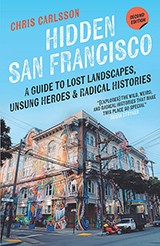

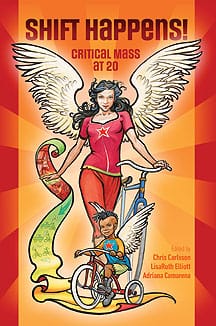
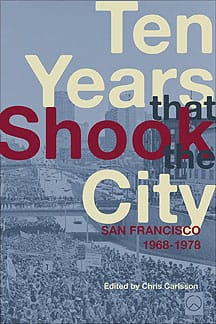
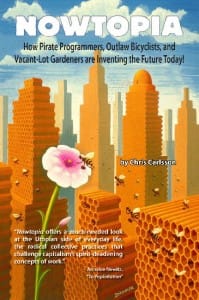

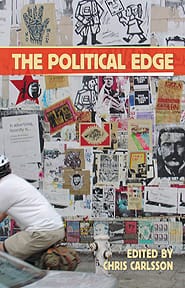

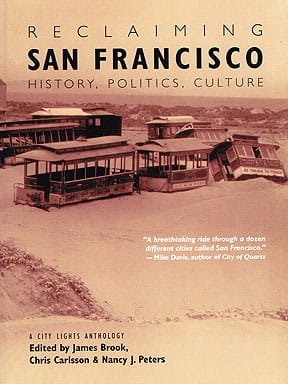
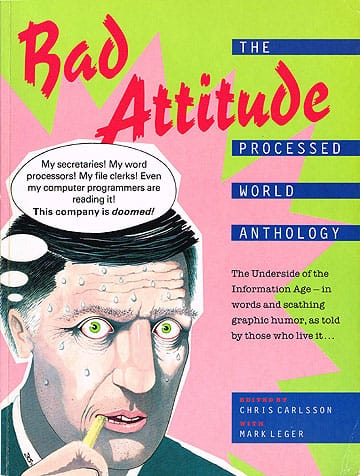

One of the ways that public attitudes towards science are molded is through its depiction in the entertainment media (novels, movies, etc.) – – which is generally very inaccurate. This appears unlikely to change much. There’s a site called LabLit.com that explores this issue, and it’s editor recently had an opinion piece in Nature: http://www.lablit.com/images/RohnNature_Jan_2006.pdf and further discusses it at
http://www.lablit.com/article/76. I also have an article on the LabLit site detailing my own painful experiences in this area.
Chris, the first thought that jumps out at me is the need to distinguish between science and what is done with science. Science just means knowledge. I’m totally with you on the notion of rediscovering/exposing/invigorating the artisianal, DIY and amateur (for the love of it!) modes and roots of knowledge-collecting. But there is nothing morally superior about either ivory tower knowledge collecting (people can build bombs with it) or garage knowledge collecting (people build bombs with it).*
To me plenty of the left/populist anti-science movements are just as misguided and unhelpful as those on the right–they’re simply less well organized and funded. Grassroots doesn’t automatically mean morally superior, of course. We did plenty of environmental damage as a species before started systematically writing down our and quantifying our discoveries, and it was a lot easier to ignore that damage without a concrete (i.e. quantitative) handle on what it was.
You wrote:
“Moreover, it is not a science that posits itself as a source of unbiased, neutral truth. In fact, as most of it is not oriented toward “pure research,” it takes on a prosaic, contextualized, social quality that the old-time Ideology of Science wants to claim it stands above.”
And there’s a lot of ambiguous multiplicity of potential meaning in there I’d like to see unpacked and carefully teased out, in, say, your book. Good science and good scientists never claim to have the objective, absolute truth. What they do claim to have is the best possible explanation for the evidence given, “the best working guess,” so to speak–enshrined in a constant challenge to find a better one, and to enlarge the pool of evidence to be explained. The purest of research often relies most inevitably on the most hands-on of practices, and “best working guess” takes on a very real, very gritty meaning when you are wresting understanding from nature’s rather clutchy and uncooperative hands.
Looking forward to reading more!
*Total and utter tangent–I’m not sure I believe this wire article about the couple that blew up their house during a marital spat, but man, what a wild story!